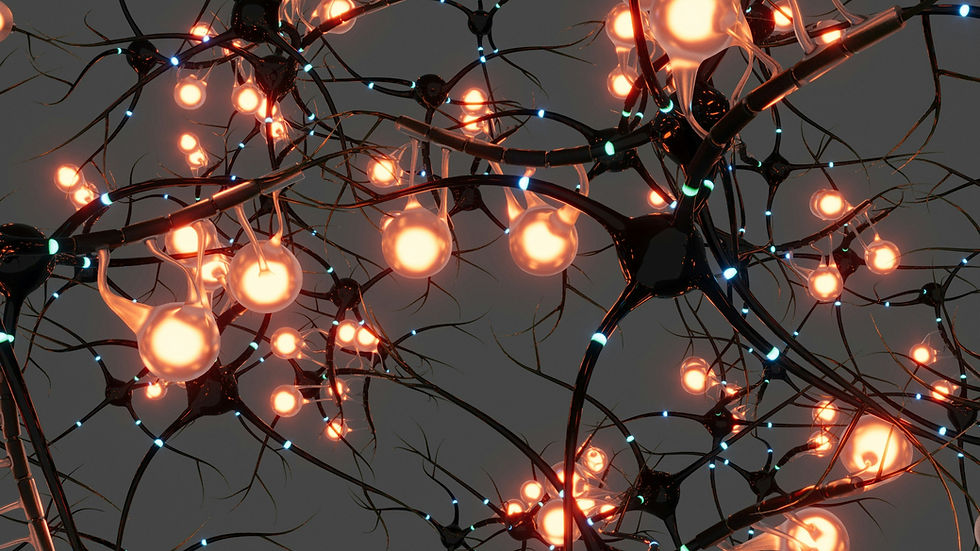CIRCADIAN RHYTHM
- MARCUS AYOUB
- Jul 14, 2024
- 2 min read
Importance of Circadian Rhythm for Brain Performance: How Light Exposure Can Disrupt Sleep

This blog post explores the impact of light exposure on circadian rhythm and brain performance. Here are the key takeaways:
Circadian rhythm is our internal body clock that regulates sleep-wake cycles, hormone production, and other physiological processes.
Light exposure plays a crucial role in synchronizing the circadian rhythm with the external light-dark cycle.
Evening light exposure can disrupt the circadian rhythm by suppressing melatonin production, a hormone that promotes sleepiness.
This disruption can lead to:
Difficulty falling asleep
Daytime sleepiness
Impaired cognitive function
The blog post highlights a study that investigated how wcześniejsza jasna ekspozycja na światło (earlier bright light exposure) in the early evening can mitigate the sleep-disruptive effects of późniejszy wieczorny (later evening) light exposure.
Here's a breakdown of the study's findings:
Evening light exposure (without prior bright light):
Reduced melatonin levels
Decreased subjective sleepiness
Increased skin temperature gradients (indicating vasoconstriction)
Evening light exposure with prior bright light exposure:
Less pronounced effects on melatonin, sleepiness, and skin temperature compared to without prior light exposure.
In simpler terms, exposure to bright light in the early evening can help our bodies adjust to later evening light exposure, minimizing its disruptive effects on sleep and potentially improving cognitive function.
Here are some additional points to consider including in the blog post:
Recommendations for optimizing light exposure: Aim for bright light exposure during the day, especially in the morning, and minimize artificial light exposure in the evening, especially blue light emitted from electronic devices.
Age: Sensitivity to light exposure can decrease with age.
Individual differences: People may respond differently to light exposure.
By understanding the link between circadian rhythm, light exposure, and brain performance, we can make informed choices about our daily routines to promote better sleep and cognitive function.




Comments